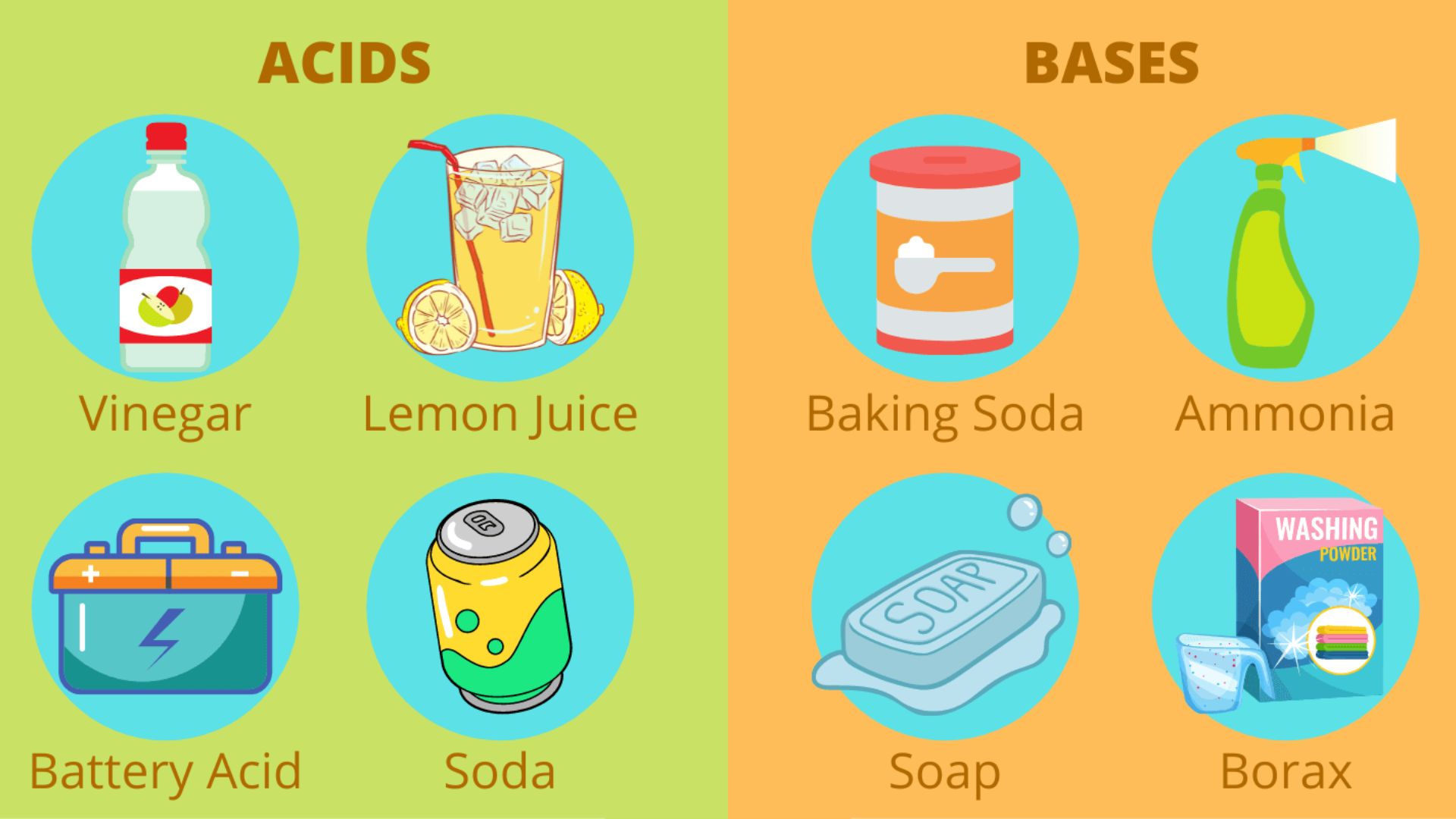Introduction
Learn about acids and bases and add 10 new words to your active vocabulary bank with the interactive activities on the website and the PDF practice worksheet.
Audio Podcast
Acids and Bases
You have no doubt heard the expression “Let’s give it the acid test.” An acid test is a crucial, severe test. Acids are well known as burning, caustic chemicals. Less well known, however, are the chemicals called bases. Bases are the opposites of acids. Acids and bases counteract each other on contact and are the key substances in many important chemical reactions that take place every day.
If you are like most people, the word acid makes you think of dangerous liquids that burn clothing and skin, but this is not always the case. To assuage your fears, consider the fact that many acids are beneficial. For example, your stomach contains very concentrated amounts of hydrochloric acid—an acid so vital that you could not digest your food without it. Our diet itself would be very bland without acids, because the characteristic taste of many fruits, like the lemon and grapefruit, is the result of citric acid. Vinegar, another common acid, is a prime ingredient in many salad dressings. In fact, the word acid comes from the Latin word acidus, which means “sour.”
However, some very dangerous acids contain hydronium ions, which can rip electrons off of other compounds in a process called oxidation. Chemically, this oxidation process is very similar to combustion. Body parts touched by a strong acid are literally burned, a process that can denude them of hair and layers of skin.
While the word base does not conjure up the fear that acid does, the names of common bases sometimes do. Lye, known by the chemical name sodium hydroxide, is one of the premier bases in household use. It is used as a drain cleaner. The exterior of its container is labeled with dire warnings and poison symbols. Lye is very caustic and can severely damage your skin if you touch it. However, to allay your concern, you should know that other bases are quite harmless, and we use them every day with impunity. A weak solution of ammonia, used to clean windows, is one common example.
When acids and bases meet, they react, sometimes violently, and neutralize each other. Take heartburn, for instance. After someone engages in gastronomic excess at the pizza house, it is not uncommon for a surplus of acid to form in the stomach. Heartburn is that burning sensation in the stomach caused by too much acid. The most common therapeutic treatment for this “acid stomach” is to swallow some form of bicarbonate of soda, or baking soda. This base neutralizes some of the acid, and the burning sensation in the stomach is relieved. When the base sodium hydroxide reacts with hydrochloric acid, they neutralize each other and form sodium chloride. Sodium chloride is the common household condiment more commonly called table salt.










0 Comments